Dyke March Chicago 2017 Was Not Anti-Semitic
Disclaimer: I am NOT an organizer with Dyke March Chicago or officially affiliated with their collective.
It’s been a week and a half since Dyke March Chicago 2017. It’s been 11 days of everyone on the internet sharing their thoughts and feelings. And lots of concepts, like anti-Zionist and anti-semitic, are being conflated.
I don’t have much to say that hasn’t already been said, but I feel compelled to answer a few insightful questions I have seen, namely Rebecca Kling’s question in Dyke March Chicago, antisemitism, and a whole lot of disagreement:
“Is it possible to share space with someone you disagree with? How much overlap of beliefs or goals does their need to be for a coalition to hold, or for individuals to maintain solidarity with each other?”
Here’s the thing about this: What I personally love about Dyke March Chicago is that it stands firm in its belief that they “welcome and include people of all identities, but not all ideologies. [They] believe in a space free from oppression..."
The conflict at Dyke March 2017 wasn’t about religious identity but an expressed ideology that marginalizes Palestinians. The issue was a representation of something that does not honor basic human rights of non-Jewish lives. As Rabbi Brant Rosen said:
“I find it stunning that so many liberal-minded members of the Jewish community are more concerned with Jewish rights in a Jewish state than the basic human rights of non-Jewish children who live under its control.”
That being said, "the march was never meant to cater to the 'fragility' of Zionists who feel challenged, unwelcome."
DMC is a gathering of community where people who are often marginalized can be in community in safety. I hesitate to make this comparison because of ties to colonialism and abuse, but DMC is seen by some queers as our church, temple or mosque. This is a place where we can come together and know that we all share the same inherent beliefs. We are here singing our praises and stating our beliefs unapologetically. And if folks don’t believe the same thing, they can find their own space, which, frankly, is often abundantly available.
Just because a person holds an identity that is oppressed does not mean that they get a free pass at oppressing someone else. (I’m not even going to link that that NY Times article criticizing “intersectionality,” a term coined by Kimberlé Crenshaw, a black woman.)
Imagine if a person of color had held a flag or sign that had transphobic interpretations on it. If someone had complained to DMC organizers (the way Palestinians did about the Israel flag superimposed on a rainbow flag), they would have also been confronted and asked to put it away or leave. Would we be screaming racism or some other -ism because of this? What if their statement about gender identity was a quote from the bible that represented their intersectional religious or cultural identities as lesbians of color?
Confronting one form of oppression, even when perpetrated by another marginalized group, is not inherently anti-semitic, racist, transphobic, etc. nor does it invalidate or erase intersecting identities.
Rebecca’s article also asks:
“More broadly, how can we work with people that agree with us on 90% of our views, but not 100%? What about 80%? 50%? Should we even try to work with people we disagree with?”
I think this is a beautiful question and I wish the conversation was more centered around thought processes like this rather than throwing around accusations and insults.
My response is that yes, there is a time and a space to work with folks who don’t fully agree with our views. There is a time and place to build bridges, have one-on-ones and create coalitions. And there is a time for folks to be able to celebrate freely in a joyous space where there aren’t signs or images that have historically oppressed anyone.
Considering that most of the hate mail I’m receiving refuses to use my correct pronouns or argues that the word dyke is inappropriate, I’d say that our disagreement about Israel and Palestine is just one of several reasons that their opinion on Dyke March is not something that I care to listen to.
It is important to note that the women with the Magen David flags were asked to leave after over an hour of discussion, not because of the flag itself.
We need to be more thoughtful about how/why convenient it is to listen to alleged accounts from one or two Jews (part of an organization profiled as a hate group by Southern Law Poverty Center) screaming discriminatory allegations rather than the dozens of other Jews there who say the opposite.
Final thought: So maybe the rainbow flag with the Star of David was intended to represent a religion rather than Israel, but impact > intention. Maybe the rainbow flag was celebrating intersecting identities, but that doesn't erase the fact that the same star is spray painted on Palestinian homes once the occupation evacuates them. Maybe the rainbow flag with the blue Star of David was not intended to be seen as an Israeli flag, but the association isn't unfounded. Maybe folks can superimpose the Magen David on a flag other than Israel's if you aren't conflating the two. Maybe the intention was to conflate the two and that's why it had the impact it did.
As Marlo Mellow, performer and fat femme queer nonbinary activist, said in a statement about other marginalized people perpetuating systems of oppression: it just stings more.
“Trans men and gay men: you are not magically exempt from misogyny and toxic masculinity because of your gender identity or sexuality. It just stings more coming from you.”
If you’re interested in supporting the Chicago Dyke March Collective, you can donate online via yourcaring or see the full list of other ways to support in the youcaring update section on the bottom of the fundraiser.

